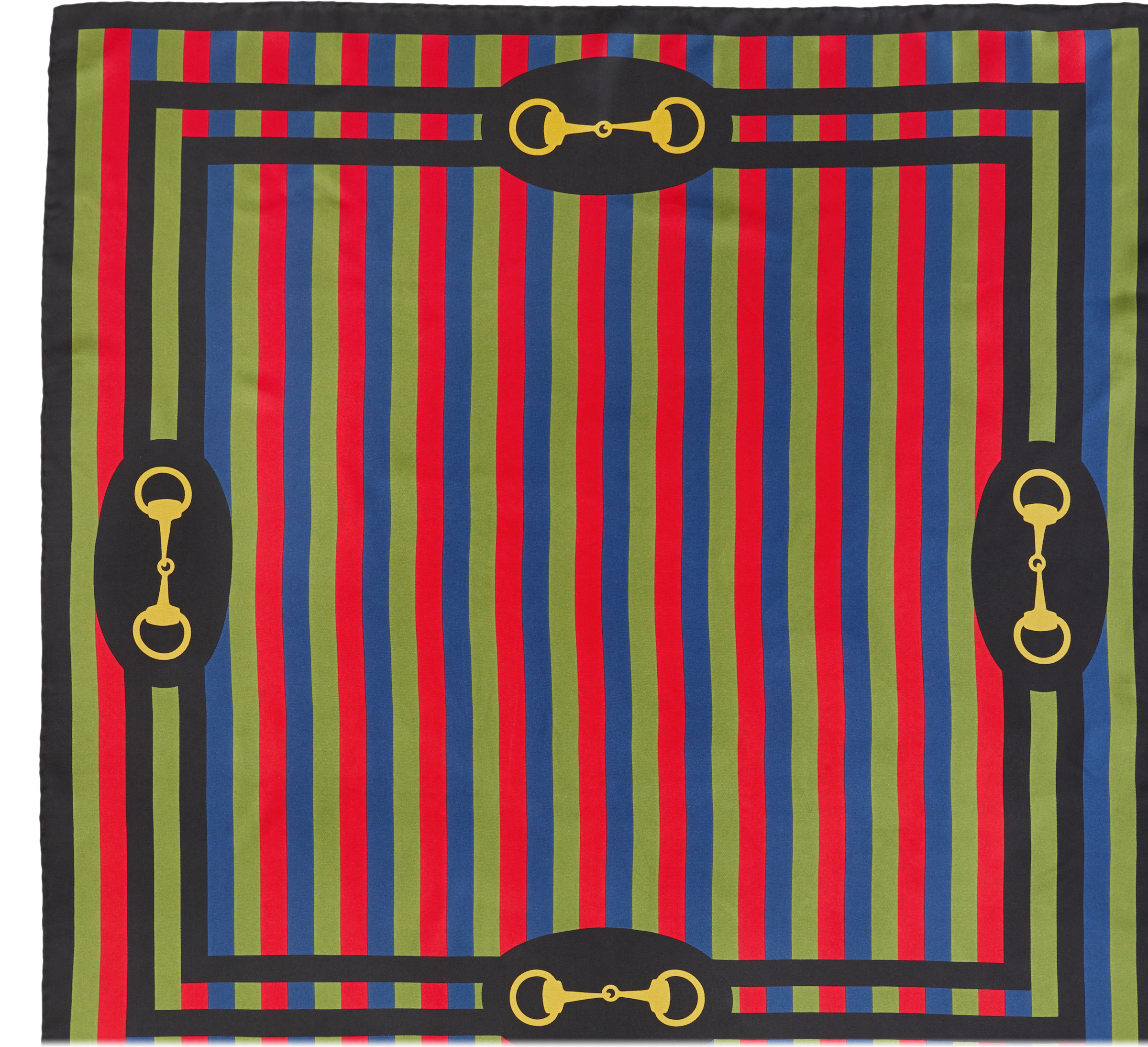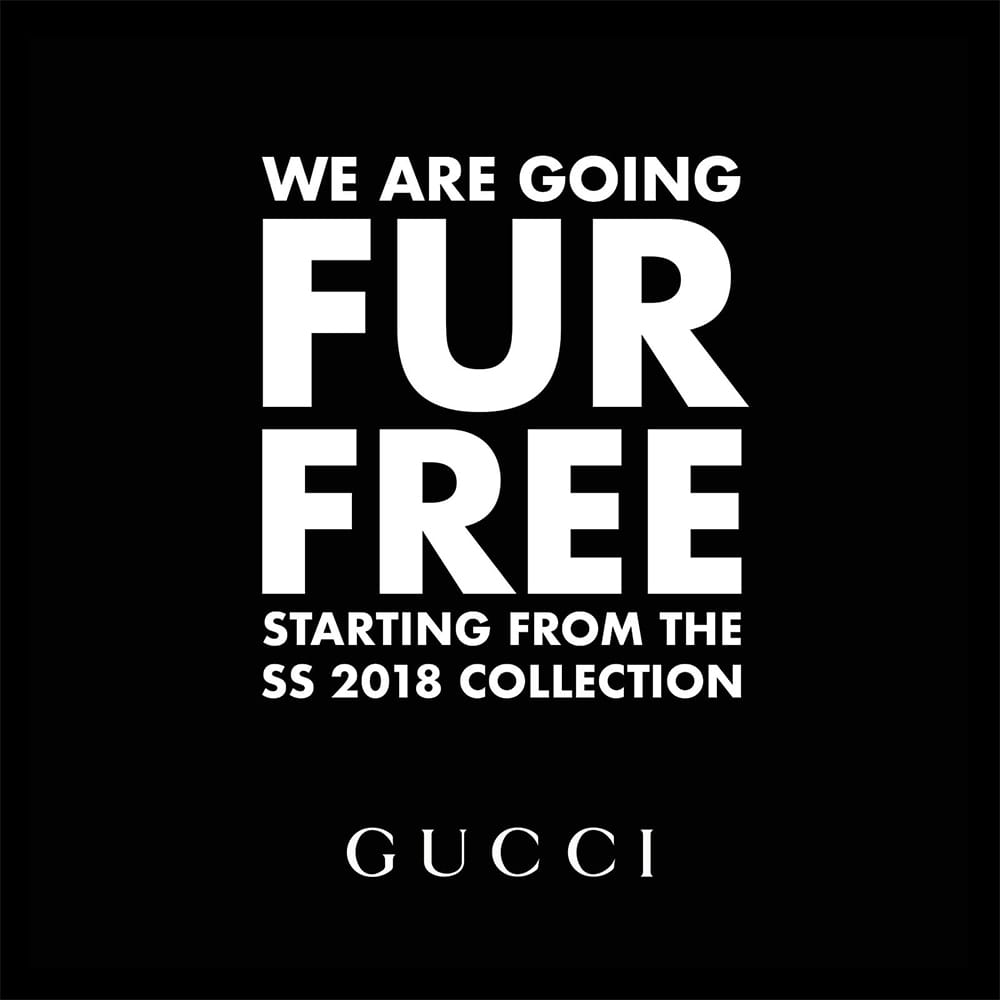Supply chain standards and policies underlining a culture of purpose
Gucci relies on a selected network of trusted suppliers, working closely with them to ensure that environmental and social best practices are embedded throughout the supply chain.
Gucci’s supply chain employs thousands of people who work for the House indirectly and help produce our collections. While they are not directly employed by us, they are definitely part of our culture. Many of these companies have supplied Gucci for over two or three generations. Our manufacturing supply chain includes both internal facilities that are owned and directly managed by Gucci and external facilities managed by trusted suppliers. 95% of our manufacturers are based in Italy.
We measure the total environmental footprint of our suppliers and transparently publish the results every year via our Digital EP&L (Environmental Profit and Loss account). The EP&L maps and analyses the impacts associated with our own operations and our entire supply chain: from Tier 0 (our direct operations of stores, offices and warehouses) and Tier 1 (our final product manufacturing and assembly); to Tier 2 (our manufacturing and preparation of subcomponents like cutting, knitting, …) and Tier 3 (raw material processing); all the way to Tier 4 (the production and extraction of raw materials).
Transparency
We also publicly share our main strategic suppliers which cover more than 95% of our volume of business. Furthermore, we publish our suppliers of Raw Material for more than one type of material. The supplier list is publicly available here and it is updated every 6 months or more frequently (last updated 30/06/2025). The list provides details including suppliers’ name, address, category type, number of employees, gender distribution, migrant workers, trade unions, parent company, and certifications and additional information on energy consumption breakdown and worker’s heat stress risk.
Code of Conduct and Sustainability Principles
All of our suppliers and sub-contractors are required to comply with our Sustainability Principles and Code of Ethics. Additionally, suppliers must act in accordance with our statement on Modern Slavery and our manufacturing operations are also monitored pursuant to the SA8000 certification management system. In particular, our Sustainability Principles are a set of guidelines that include oversight on sustainable sourcing, legal compliance, collective and supplementary agreements, international conventions and declarations on human rights, environmental preservation and respect for animal welfare. Adhering to Gucci’s overarching Sustainability Principles is also included in the contracts we have with our suppliers. These principles are updated periodically in accordance with the requirements of our parent company’s KERING Standards & guidance for sustainable production.
Gucci’s suppliers are also aligned with our Manufacturing Restricted Substances List, which addresses hazardous substances that can potentially be used in manufacturing and discharged into the environment. They also adhere to our Product Restricted Substances List (PRSL) to eliminate the use of hazardous chemicals that can be present in finished products. Furthermore, to ensure the progression of MRSL compliance within the Group’s entire supply chain, Kering developed and implemented a specific MRSL audit methodology. Collaborating with our industry on chemicals is also key to ensure best practices are adopted by luxury and fashion. To support this, we developed the Guidelines on Eco-Toxicological Requirements for apparel, leather goods, footwear and accessories in association with the Camera Nazionale della Moda Italiana. Kering has also been an official signatory of the Zero Discharge of Hazardous Chemicals (ZDHC) since 2016, after having observed it since 2015. The ZDHC comprises some 30 major international brands working to eliminate the most dangerous chemicals from the textile, leather and footwear industry supply chains by encouraging sector-wide adoption of best practices and sustainable chemicals use.
Monitoring System
To ensure continued compliance and the implementation of Gucci’s high standards, and our Sustainability Principles and Code of Ethics, throughout the duration of supplier agreements, Gucci has a robust monitoring system in place and suppliers and subcontractors (including raw material suppliers) are subject to regular audits by specialists from Kering and third-party teams. If any breaches of compliance are identified, corrective action plans are put together following audits. Follow-up audits are then conducted to ensure any non-conformance has been rectified. To support our suppliers in meeting Gucci’s Sustainability Principles, we hold training seminars for each product category every year. These seminars share best practices and information related to our sustainability strategy and the key impacts generated in our supply chain, with the aim to support supplier improvements overall.
Living Wage
As stated in our Policies, Code of Ethics and Sustainability Principles at Gucci, we are committed to ensure that a living wage is paid to all employees of our supply chain.
To better understand the working conditions and wages of the thousands of employees working in the luxury sector in Italy, where the vast majority of Gucci suppliers are based (95%), Gucci proactively joined a multi-brands’ committee dedicated to social sustainability created at Camera Nazionale della Moda Italiana. In the framework of this committee, the Fair Wage Network conducted an independent survey, “Social Sustainability Report: a survey on wage practices among luxury fashion suppliers in Italy“, and developed a Social Sustainability Road Map to commit to fair wages and increased workplace social sustainability across the luxury sector. The results of Fair Wage Network’s analysis are publicly available here. The Report and Road Map pull from the Fair Wage Network comprehensive approach, clearly recognizes that in Italy the fair (as in sufficient) wage is defined by National Collective Labor Agreements agreed between employers and the key representative trade unions. Gucci uses to the Social Sustainability Road Map as reference for its own approach in Italy.
In order to ensure the concrete application of the National Collective Labor Agreements agreed between employers and the key representative trade unions, Gucci and Kering conduct regular assessments and social audits of all our suppliers. More information about our auditing system can be found in our 2023 URD here (Chapter 4.4).
Support and Development programs
Supporting our suppliers is a big priority for us and women’s empowerment across our supply chain is especially important. With this in mind, in 2019 Gucci joined the study “Supporting Women in the Luxury Supply Chain: A Focus on Italy”, promoted by Kering, to understand the status of women working in the Italian luxury supply chain and to identify opportunities to support gender equality. Following this important research work on women’s needs in the Italian supply chain, a webinar was organized in September 2020 to discuss the results of the study and the opportunities to promote gender parity and equality. Trainings aimed at women working in the supply chain have also been carried out in order to develop and raise awareness for gender equality.
During the COVID-19 pandemic Gucci implemented a series of initiatives to support our supply chain partners. In recognition of the sanitation emergency caused by COVID-19, Gucci fully complied with the health and safety protocols stipulated by the COVID-19 guidelines around sanitation and hygiene. Gucci also continued to regularly pay all supplier orders during the lockdown. Furthermore, to support our suppliers’ economic challenges resulting from the pandemic, we worked with Intesa San Paolo bank in Italy to create a program to guarantee quick access to a wide range of loans, at the best terms and conditions, and with faster disbursement of loans. This was an extension of the “Sviluppo Filiere” programme, which was launched in 2015. The Gucci and Intesa Sanpaolo collaboration helped small and medium-sized suppliers recover from the impact of the Covid-19 pandemic and launch their recovery and growth plans. In addition, in the early stages of the Covid-19 emergency, Gucci and Intesa Sanpaolo launched the “We Are All in This Together” fundraiser for the National Department of Civil Protection. In 2021, Gucci and Intesa Sanpaolo bank joined forces the first of its kind in Italy—to aid the implementation of ethical and responsible practices throughout Gucci’s supply chain. The project provides small and medium-sized enterprises of excellence within our supply chain facilitated access to loans at better terms and conditions to launch their own industrial evolution in accordance with the principles of the green revolution and ecological transition supported by Italy’s National Recovery and Resilience Plan.
Since the program’s launch, 645 suppliers in Gucci’s Italian supply chain have benefited from over € 734 million in loans provided by Intesa Sanpaolo.


